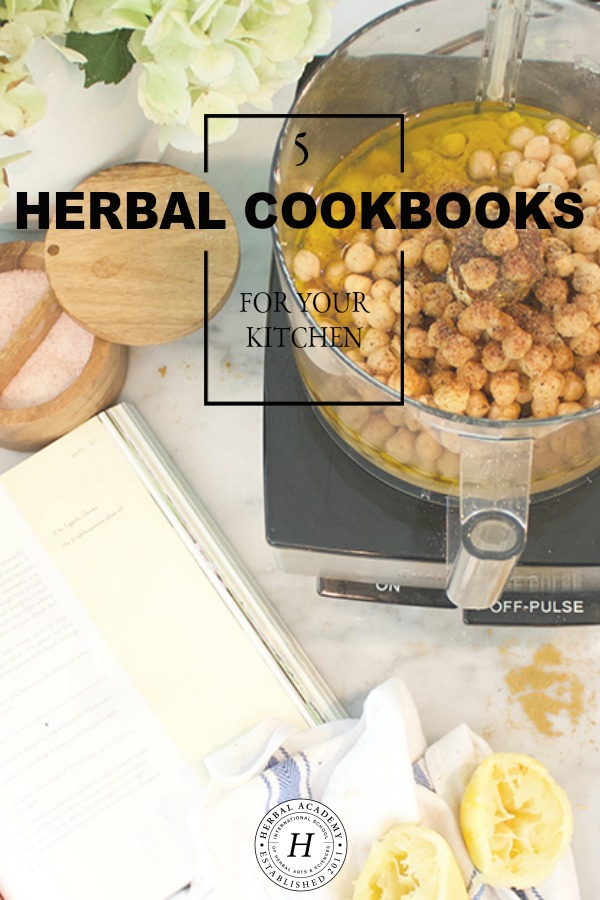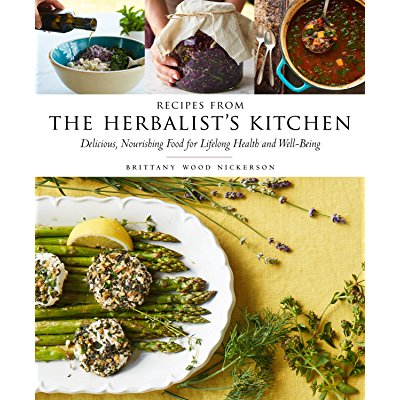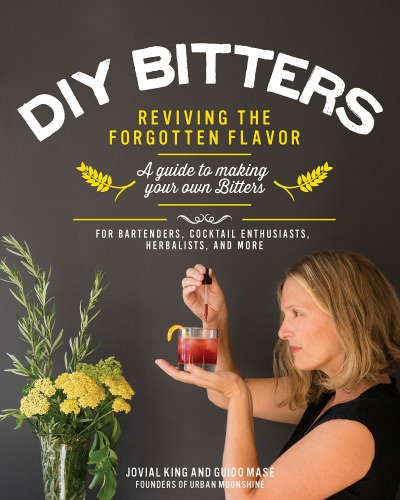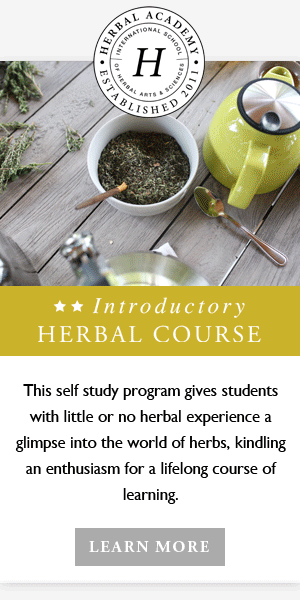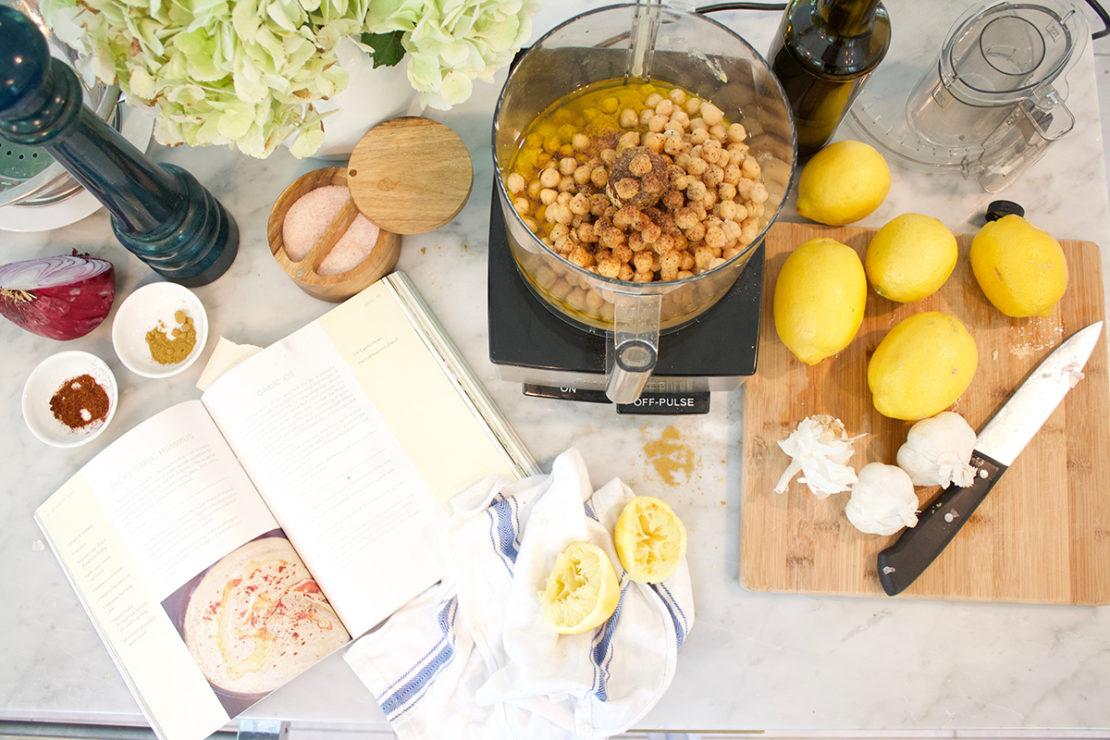
5 Herbal Cookbooks For Your Kitchen
Cooking with herbs can be one of the more delicious and rewarding ways to integrate herbs into our daily life. In fact, herbs have held a place in the kitchen through the centuries, and are integral to cultural culinary traditions. Many of our first interactions with herbs may have been a garnish of parsley, meats seasoned with rosemary, or basil in our pasta sauce. We may not have known that they weren’t just there for color! However, herbs help our digestive system prepare to digest foods and aid the liver’s detoxification process. Relearning these original reasons for the inclusion of herbs in meals can spark fascinating historical insight and a new appreciation for the power of these familiar plants.
In this article, we’re sharing five of our favorite herbal cookbooks to use in the kitchen. We love these recipe books because each has a different voice and method for passing down the wisdom of using herbs in everyday life. Some books use gorgeous photo imagery to demonstrate and inspire, while others weave each recipe within a storytelling style that brings us back to the natural rhythms and seasons that inspired these recipes. Another aspect we love about these books is that most of the recipes are flexible — encouraging creative experimentation of your own. All of these herbal recipe book authors bring extensive experience to their work and often ground recipe sections with valuable foundational herbalism information, such as the five flavors and substantial materia medica sections.
Whether you’re a complete novice or a seasoned herbalist (no pun intended!), all of these books will help inspire new dimensions in your herbal practice and insights into the foods that you eat.
5 Herbal Cookbooks To Try
 1. Alchemy of Herbs by Rosalee de la Forȇt
1. Alchemy of Herbs by Rosalee de la Forȇt
Rosalee de la Forȇt’s Alchemy of Herbs is a helpful guide with which to begin your herbal studies via the kitchen. de la Forȇt’s passion for this work comes through strongly in the book and is two-fold: (1) bringing the lofty concepts of herbalism down to earth for all levels of learning; and (2) encouraging us away from the one-size-fits-all approach to healing. Instead, she highlights the efficacy of tailoring one’s approach to using herbs based on the person’s unique constitution versus solely the ailment itself.
The book strategically organizes its information to teach the reader valuable principles of herbalism along with each recipe. The book also emphasizes the importance of studying one herb at a time by profiling 28 herbs with several recipes for each one. Profiles are also cleverly organized into sections based on which of the five flavors they belong to, creating a taste association so that, in time, the reader will begin to easily remember an herb’s classification as salty, sweet, sour, bitter, or pungent based on its location in the book.
We love the way de la Forȇt includes a mini quiz in the beginning of the book so readers can determine their basic constitution. Sometimes actions and energetics can be a bit intimidating to a newcomer, yet this simple exercise makes it both relevant and understandable. The reader can then search for herbs by paying attention to those with energetics appropriate for their constitution. Because it is presented in this layered and engaging way, the information in this book sticks with the reader. With this unique structure and some fun recipes to experiment with, readers will be well on their way to understanding and enjoying some tasty herbal lessons.
2. Recipes from the Herbalist’s Kitchen by Brittany Wood Nickerson
This wonderful book has a wonderful combination of beauty and brains. Brittany Wood Nickerson has been an herbalist for over ten years and a practicing chef for nearly as many. Wood Nickerson’s experience shines through in her thoughtful and beautifully written introductions to the complex principles of herbalism and holistic nutrition. She quickly makes these concepts relatable, often reminding us of ways we already use herbs, some of which we may not even be aware. She follows with twelve profiles of beneficial culinary herbs and leads us towards actionable steps with some delicious looking recipes.
Chapters are organized by categories of innovative recipes intending to Nourish, Invigorate, Comfort, Challenge, Transform, Adapt, and Share. The Adapt chapter may be one of our favorites, as it outlines recipes for each season throughout the year. As an added treat, Nickerson’s recipe book is gorgeously laid out with dreamy full-color spreads of her ingredients, recipes in process, and lovely backyard garden table spreads — inspiring us all to seek the beauty inherent in working with these herbal additions in our daily lives.
Perhaps the most poignant takeaway is her encouragement for the reader to empower themselves through learning about their own body’s specific interaction with these plants. Wood Nickerson aims to reorient readers’ perspective away from a deprivation mentality and toward a celebration of these nutritive plants, leading us all to make more empowered choices with confidence.
 3. The Healing Kitchen by Holly Bellebuono
3. The Healing Kitchen by Holly Bellebuono
Herbalist Holly Bellebuono identifies as a hand-crafter in various areas throughout her life, a propensity which naturally lends itself well to herbal recipes. Although at first somewhat intimidated to venture into the kitchen, eventually Bellebuono got to the point where she describes the kitchen as “an extension of both my garden and my medicine cabinet.” Something comforting and reassuring about this tidbit is that it serves to welcome other newcomers to the table.
The structure of the book is set up to include recipes by category, gradually increasing in complexity. These include Additions, Drinks, then Foods — starting with simple recipes for herbal salts, spices, oils, and vinegar before moving onto more substantial smoothies, chai blends, snacks, salads, and then full meal recipes. Each entry has a helpful icon indicating the benefits the recipe provides (Immune System, Digestive, Calming, Iron-rich, etc.). Along with a glossary, she also indexes the recipes by these benefits for easy referencing. Plant profiles appear interspersed between recipes with playful watercolor illustrations of each plant. This book acts as a friendly helping hand, encouraging readers to get more creative with the healthy and delicious herbs available to them.
4. The Herbal Kitchen by Kami McBride
Kamie McBride’s The Herbal Kitchen is a storehouse of information offered in a practical based on the author’s years of experience as a practicing herbalist. McBride details her lifelong passion for making food with seasonal ingredients right out of her backyard, starting in childhood with her grandparents. Her stories paint an engaging picture of the past where cues were taken from nature and certain seasonal ingredients were a treat to look forward to. Similarly, her plant profiles and recipe sections all have a warmth and personality that weave in anecdotes about what inspired each recipe, ways she has adjusted it, and personal preferences she offers as guidance.
Her book is set up in two main sections: (1) a 50-plant materia medica; and (2) recipe chapters for a variety of categories, including Herbal Waters, Drinks, Smoothies, Honey, Vinegar, Cordials, Oils, Ghee, Pesto, Sprinkles and Salts, and Baths and Foot Soaks. The materia medica alone is a treasure, with each profile packed with useful information and historical uses and background. Recipes are uniquely structured with a brief description followed by a list of herbs and ingredients the reader can plug in to each recipe. We love the flexibility this provides — helping readers to use what they may have on hand and inspiring creativity to mix and match recipes and ingredients. With McBride’s experience and guidance, this book brings readers all the tools they need to tell their own story in the herbal kitchen.
5. DIY Bitters by Jovial King & Guido Masé
Ready to take it up a notch? In more ways than one, bitters are a challenging flavor in more ways than one. They challenge our systems to step up the digestive process, help us to avoid sugar cravings, and regulate appetite. Bitter is one of the five flavors, yet it is largely absent from the American palate. Thankfully, the brains behind Urban Moonshine, Jovial King and Guido Masé, have stepped in to advocate for reintroducing bitters into our diets. King and Masé provide a comprehensive guide to all things bitter, from the various bitter tastes to the taste receptors on our tongue and even the history and chemistry of bitters. They also include the best ways to incorporate both the product and foods into your daily eating habits.
King and Masé successfully make a case for bitters that leave us wondering how to introduce bitters into our daily lives. They include an extensive materia medica, as well as many bitters recipes — including an early recipe for Angostura bitters, a staple for many classic cocktails. Whether readers are looking for a preparation lesson, a history lesson, or a science lesson — this book has something fascinating for them to learn and reintroduce to their palates.
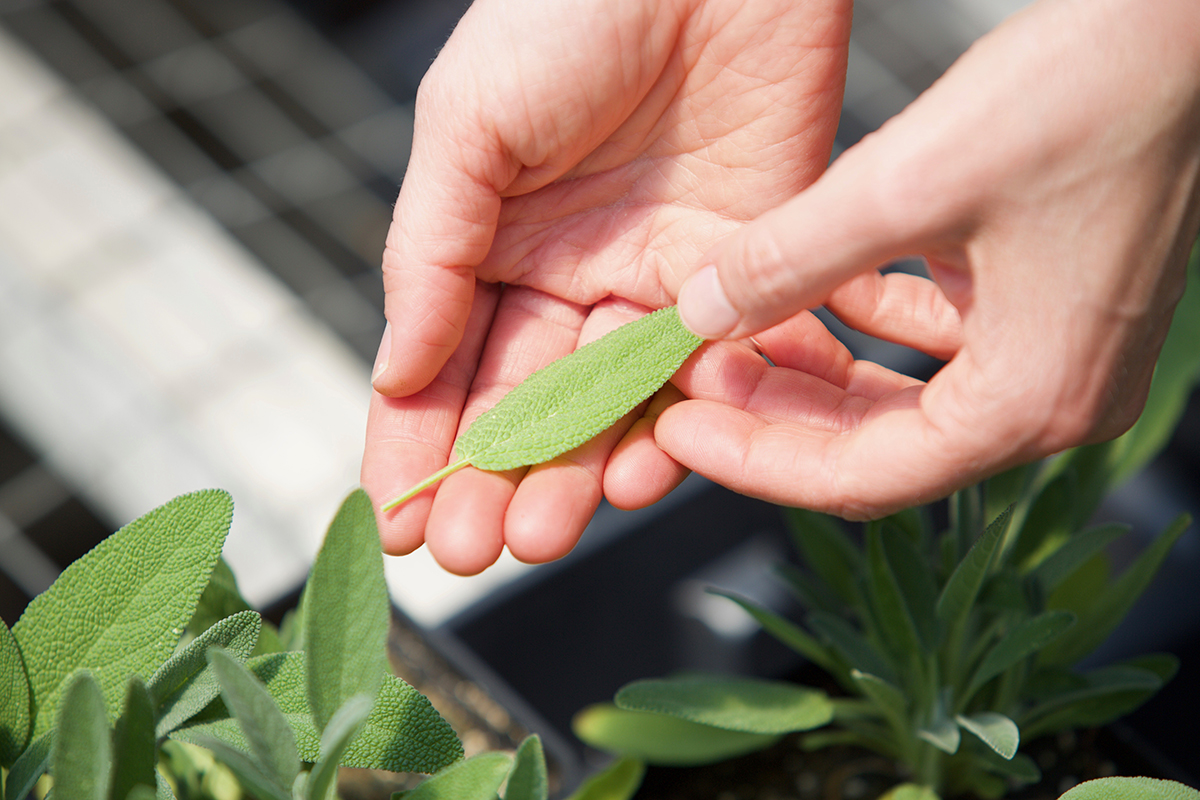
How To Use These Books In Your Kitchen
One cannot have too many cookbooks or, in our case, herbal books — or both!
This variety of herbal recipe books will give you plenty of dishes to try and should keep you inspired in the kitchen. Plus, the tips and tricks in these books can save you from missteps and add dimension to your process as well.
Learning from the several different materia medicas in these books will help you build a trove of information for each ingredient you choose to use. Some of these books are set up to help when you have an abundance of lemon balm and would love to know all the things you could make with it. Others have you covered if you’d like to really wow your friends or family with a dish that is both delicious and beneficial; because at least at first, you’ll probably have better luck enticing a newbie with an herbal pesto or risotto than a bitter tincture!
If you’re completely new to herbalism and just want to start exploring herbs from your kitchen, choose books with lengthier introductions that lay out the principles of herbalism and holistic health. This will ground your studies and your cooking with a history, context, and purpose behind the ingredients you work with. You’ll end up with a baseline of knowledge and actionable steps for applying it. If you’re well-acquainted with the herbal world, maybe take a spin through some more flexible recipe books and experiment with some ingredients you already love. The possibilities are truly endless, but these resources can really inspire you to get the ball rolling!
